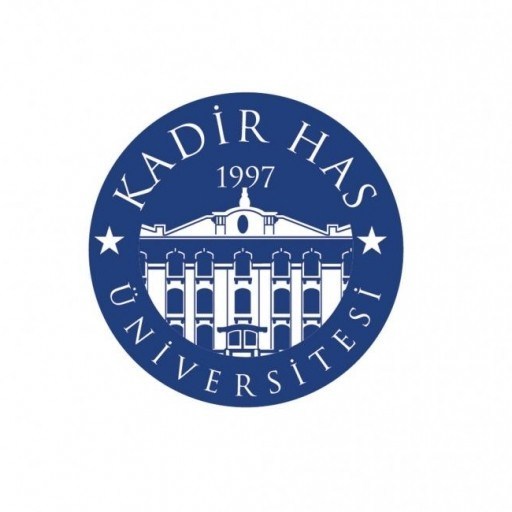Photos of university / #bilkentuniv
The Bachelor of Interior Architecture and Environmental Design program at Bilkent University is a comprehensive undergraduate program dedicated to cultivating skilled professionals capable of transforming interior spaces to meet functional, aesthetic, and sustainable standards. This interdisciplinary curriculum combines creative design principles with technical knowledge in architecture, environmental psychology, and sustainable practices, preparing students for diverse careers within the interior design and environmental planning sectors. Throughout the program, students engage in a rigorous academic journey that emphasizes innovative design solutions, technical proficiency, and an understanding of diverse cultural and environmental contexts. The curriculum includes foundational courses in design theory, drawing, and building systems, along with specialized subjects such as lighting design, furniture design, and environmental sustainability. Students benefit from state-of-the-art studios and labs equipped with advanced design software and prototyping facilities, fostering hands-on learning and experimentation. The program also encourages collaboration with industry partners through internships, workshops, and real-world project assignments, ensuring graduates are well-equipped to meet the demands of the professional environment. Graduates of the program acquire a comprehensive skill set that includes spatial analysis, project management, and a deep understanding of interior ecosystems, enabling them to design innovative, functional, and environmentally responsible spaces. Ultimately, the program aims to produce visionary designers who can contribute to improving quality of life through sustainable and human-centered interior environments at local and global levels.
The Interior Architecture and Environmental Design undergraduate program at Bilkent University is dedicated to preparing students for the dynamic and multifaceted field of interior space creation and environmental planning. This program emphasizes a comprehensive understanding of design principles, architectural theory, and sustainable practices, equipping students with the skills necessary to develop innovative and functional interior environments that enhance the quality of life for users. Throughout the curriculum, students engage in a rigorous exploration of spatial design, materials, lighting, acoustics, and human-environment interactions, fostering both creative expression and technical proficiency. The program integrates theoretical coursework with practical studio work, enabling students to apply their knowledge through real-world projects, collaborative teamwork, and site analyses. Students are encouraged to develop critical thinking, problem-solving abilities, and a strong design sensibility that aligns with contemporary trends and technological advancements. The faculty comprises experienced professionals and scholars dedicated to mentorship and guiding students in building a solid foundation for careers in interior architecture, exhibition design, environmental consultancy, and related fields. The program also highlights the importance of sustainable and environmentally responsible design, preparing graduates to address current challenges such as resource efficiency, health considerations, and social impact. With access to state-of-the-art facilities and design studios, students gain hands-on experience creating diverse interior spaces, from residential and commercial to institutional and public environments. Upon graduation, students will possess a well-rounded portfolio of work and the necessary competencies to pursue professional careers, further academic research, or innovative startups. The program aims to cultivate creative, socially responsible, and forward-thinking interior architects capable of shaping functional, aesthetic, and environmentally sustainable interiors globally.
The undergraduate program in Interior Architecture and Environmental Design at Bilkent University is designed to equip students with a comprehensive understanding of interior spaces, environmental sustainability, and aesthetic, functional, and ergonomic considerations. The program emphasizes a multidisciplinary approach, integrating principles of architecture, design theory, environmental psychology, and technical skills. Students are expected to develop both creative and analytical abilities through a combination of coursework, studio projects, and practical experiences.
The curriculum covers core subjects such as design fundamentals, space planning, building technology, lighting, materials and finishes, environmental sustainability, interior acoustics, and digital design tools. Advanced courses may include historic preservation, universal design, and sustainable design strategies. Students are encouraged to engage in research and innovation, applying critical thinking to contemporary challenges in interior spaces.
The program also emphasizes the importance of professional ethics, communication skills, and teamwork, preparing graduates for diverse career paths in interior design firms, architectural practices, and environmental consultancy companies. Practical training is integrated via internships and collaborative projects, providing real-world experience and industry connections.
Graduation requirements typically include completing a set number of credits, passing all coursework, and successfully executing a thesis or capstone project that demonstrates an integrated understanding of interior architecture and environmental design principles. Students also participate in seminars, workshops, and exhibitions to showcase their work and stay updated with emerging trends and technologies in the field. The program aims to produce graduates who are not only proficient designers but also responsible environmental stewards, capable of creating innovative, sustainable, and functional interior environments.
The financing studies for the Interior Architecture and Environmental Design program at Bilkent University encompass a comprehensive range of options aimed at supporting international and domestic students financially. Bilkent University offers various scholarships, grants, and financial aid opportunities designed to reduce the economic burden on students pursuing this specialized field of study.
Merit-based scholarships are available for outstanding students who demonstrate exceptional academic performance upon admission. These scholarships may cover partial or full tuition fees, depending on the student’s achievements and the criteria set by the university. Additionally, Bilkent University provides need-based financial aid, which considers the financial situation of applicants and their families. Applicants seeking such aid are typically required to submit detailed financial documentation to assess their eligibility, ensuring that assistance is awarded fairly and transparently.
International students have access to scholarship programs specifically tailored to promote academic excellence and cultural diversity. These may include semester-based, yearly, or program-specific scholarships that help offset tuition costs. The university also encourages students to explore external funding sources such as governmental stipends, international scholarship programs, and philanthropic foundations. Bilkent University often collaborates with various organizations to facilitate scholarship applications and provide guidance.
Students are encouraged to apply early for financial aid options as application deadlines for scholarships often precede registration periods. The university’s Financial Aid Office provides extensive support to guide students through the application process, explaining eligibility requirements, necessary documentation, and the scope of coverage. Students can also benefit from flexible payment plans that allow for installment-based tuition fee payments, easing financial planning over the course of the academic year.
Furthermore, Bilkent University’s Career Development Center offers guidance on part-time employment opportunities available on and off-campus, which can help students earn additional income while studying. Some students may also consider external student loans, although these are solely managed by external financial institutions, with the university providing necessary documentation upon request.
In sum, the financing studies of the Interior Architecture and Environmental Design program at Bilkent University are designed to ensure that talented students can access high-quality education regardless of their financial background. Through a combination of scholarships, financial aid, payment plans, and employment opportunities, Bilkent strives to create an accessible and supportive environment for all students pursuing their academic and professional goals in interior architecture and environmental design.
The Interior Architecture and Environmental Design program at Bilkent University offers students a comprehensive education in the design and planning of interior spaces, focusing on aesthetics, functionality, and sustainability. The program aims to equip students with the technical skills and creative abilities necessary to develop innovative interior environments that meet the needs of users while considering environmental and economic factors. Students are introduced to core design principles, building systems, materials, and construction techniques, as well as the cultural and historical contexts of interior spaces. The curriculum emphasizes a balance between theoretical knowledge and practical application, encouraging students to engage in real-world projects, internships, and collaborations with industry professionals. The program prepares graduates for careers in architectural firms, interior design companies, and freelance interior consultants, as well as opportunities in urban planning, environmental design, and related fields. Faculty members consist of experienced academics and industry practitioners who provide mentorship and guidance throughout the student’s academic journey. Bilkent University's state-of-the-art facilities, including design studios, computer labs, and Wi-Fi enabled spaces, facilitate hands-on learning and creative exploration. The program also promotes awareness of sustainable and environmentally responsible design practices, reflecting the university's commitment to sustainable development and innovation. Graduates of the Interior Architecture and Environmental Design program are expected to possess strong design skills, technical knowledge, and an understanding of user-centered and environmentally conscious approaches to interior space planning. The program encourages interdisciplinary collaboration, critical thinking, and continuous professional development, ensuring that students are well-prepared for the evolving demands of the interior design industry.









